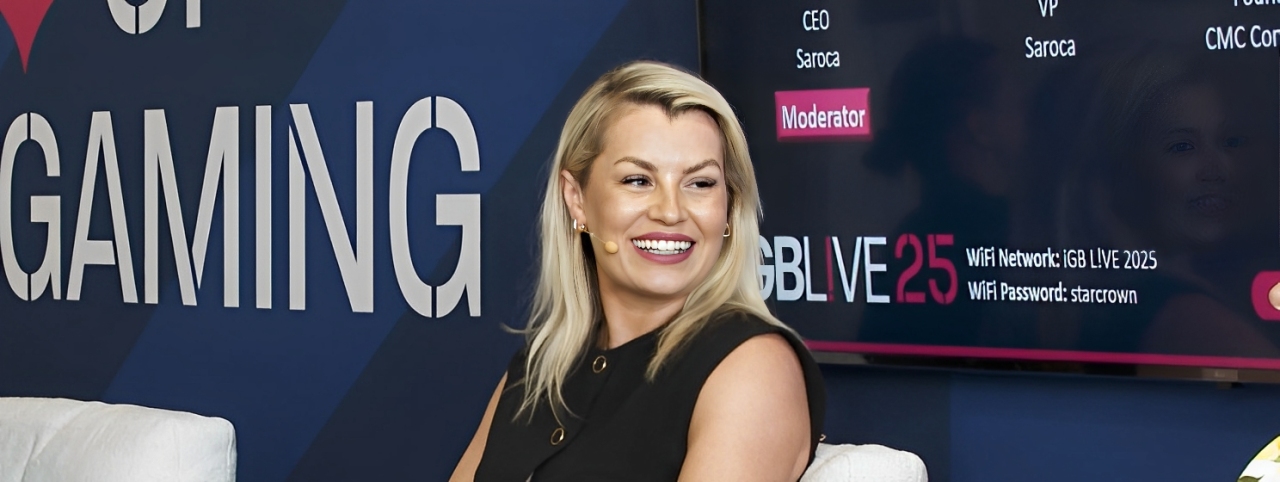|
Getting your Trinity Audio player ready...
|
Do you have an amazing idea you would love to bring to life, but you’re too afraid to try? What is it that you’re afraid of? What could help you overcome those fears?
These are all questions that I was able to ask startup founders, mentors, investors, and leadership coaches while I was attending iGB L!VE 2025, one of the largest online gambling industry conferences of the year.
During the event, I spent most of my time around the iGB Accelerator and Startup Launch Pad, which were both packed, high-energy, and full of frontier tech talks.
In this world of frontier tech, we need more entrepreneurs to build solutions that the market needs, especially with blockchain. However, fear is a common roadblock when it comes to starting a business, so many brilliant entrepreneurs face fears such as imposter syndrome, lack of support and many other things, but there are ways to overcome these fears.
“Fear is just discomfort, and people hate being uncomfortable, so it’s absolutely normal. It’s part of your human conditioning,” shared Emily Haruko, CEO & Founder of Saroca, a transformational leadership development service.
“Understanding what’s available on the other side of facing that fear is I find something really motivational for people or inspiring for people, that they have a crystal-clear vision of what going through that hardship or what risking that fear may potentially yield,” she added.
Longtime friend Karolina Pelc founded BeyondPlay in 2021 and exited three years later when it was acquired by FanDuel. It’s been incredible to follow her journey. She now serves as the VP of FanDuel and has recently written a book, HerPlay, which dives deep into the grit and determination behind her success story.
“Don’t let that fear stop you because it’s actually researched and data-proven that the main reason why people don’t start their businesses or don’t change their career is fear,” she said.
“Rather than doing that, it’s just recognize the fear and understand it’s a feeling and it’s something to be overcome and it’s also a moment of discomfort that is going to make you grow,” Pelc added.
“I would say embrace that fear. If you’ve got that fear, it’s your gut instinct telling you that you’re on to something,” added Claire Adamou, Vice President of Saroca.
“When you’re an entrepreneur, you have to work through that fear, right? You’re there for a reason. Embrace that, use that. I almost feel like you use that as rocket fuel and really use that nervous energy as the way of pitching, as the way of showing your enthusiasm and really showing the passion behind the project that you’re bringing forward,” she said.
One of the ways fear can take shape is through imposter syndrome, a common phenomenon in startup founders.
“Imposter syndrome is that inner critic, it’s the inner voice that says we’re not good enough or it’s looking at others and comparing ourselves to our peers and other people, they’re doing a great job, why would someone invest in me?” Adamou explained.
“I’m here giving a pitch for an investor, they’re here, they’re listening to me, so even if you feel like an imposter you’ve half won by getting it through the door. So it’s remembering those things even when you don’t feel like it,” she said.Defy the Odds, co-founded by iGaming industry vets Sue Schneider, Paris Smith, and Kelly Kehn, is a Startup Launch Pad that leverages community, mentorship, and capital to support innovation in gaming. Kehn shared her thoughts on common business fears, including imposter syndrome.
“I think all founders, all entrepreneurs, when they get in that space experience [imposter syndrome] a lot, and I think the community is there to help them know that they’re not alone, that everyone’s going through it,” she said.
“We don’t have to call it a syndrome, like we’re sick or something… it’s just part of growth,” Kehn added.
Expanding on community support, mentorship, and coaching are wonderful tools to help overcome common fears and provide an opportunity to seek advice from people who are there to guide you.
“I believe so passionately about the benefits of working with a coach or mentor. It’s leaning on others for support, it’s questioning, it’s working through the imposter syndrome, the self-doubt, the fear. That’s where the coaching comes in, and it can be such a powerful tool, ally,” Adamou shared.
“We all need support. Nobody does significant, fantastic things by themselves. So, I think to be able to see your own swing and to support human performance, coaching’s needed,” added Haruko.
Pelc, a big believer in mentoring—and also a mentor herself—wrote about the “unsung heroes” who mentored her in her book.
“They never did it in any formal way, but it was just this warm openness that I could ask questions, I could feel I have a safe place, and I have people that I can always validate my concerns or ideas with,” shared Pelc.
“Having a network is a privilege and having someone to help you understand [and] answer a question that might take you a year to figure out on your own is really important,” added Kehn.
“Mentorship also is a visible signal that there are people out there that look like you, have taken a similar journey, that might have done it ahead of you, so that it gives them confidence to carry on in their journey,” she said.
Another way to overcome a fear of failure is to recognize that we make our own luck. Pelc is not where she is today just because she got lucky; she made space for luck along her journey.
“Luck doesn’t meet you when you’re sitting still. You need to be moving, you need to be trying, and when it does come to you, then you look at it differently as well, because a lot of people think that ‘I’m feeling lucky’ is a negative, carries a negative connotation. It does not,” Pelc said.
“Feeling lucky is something you should be proud of because clearly you created space for that luck to land,” she added.
Watch | Adapting to AI—what entrepreneurs need to know

 03-02-2026
03-02-2026 




